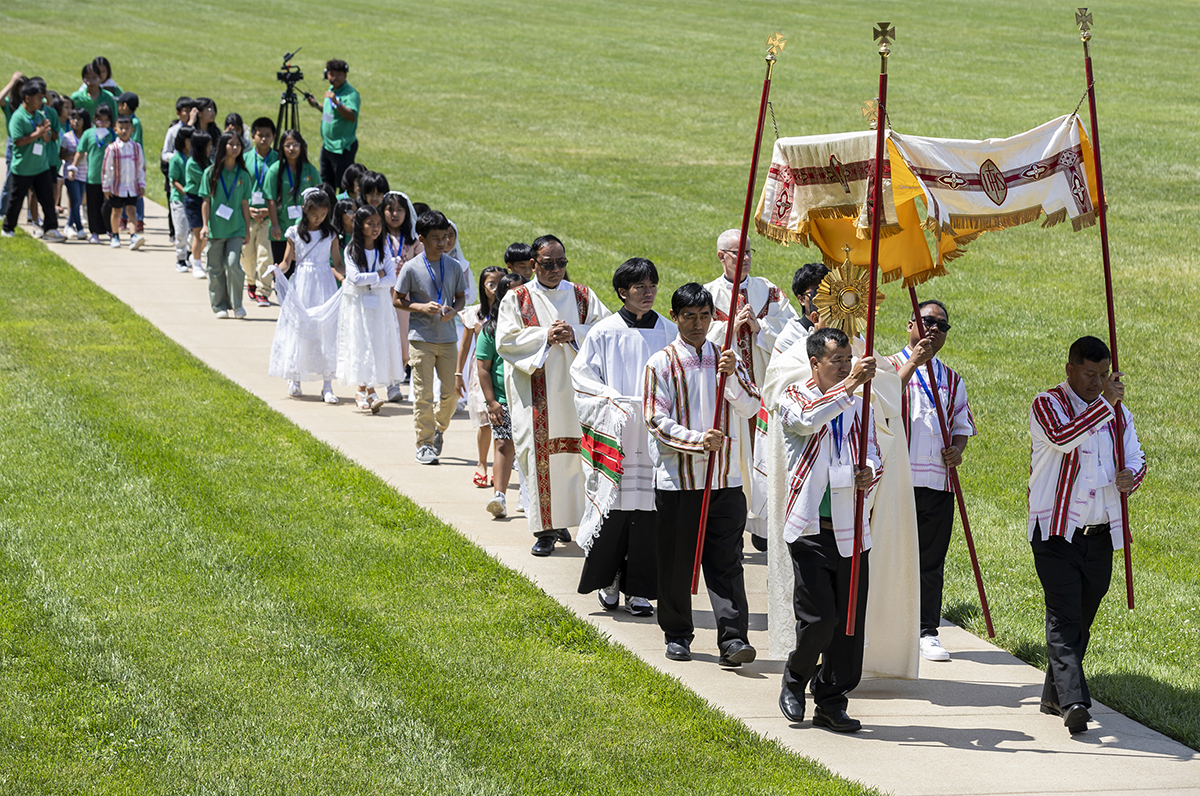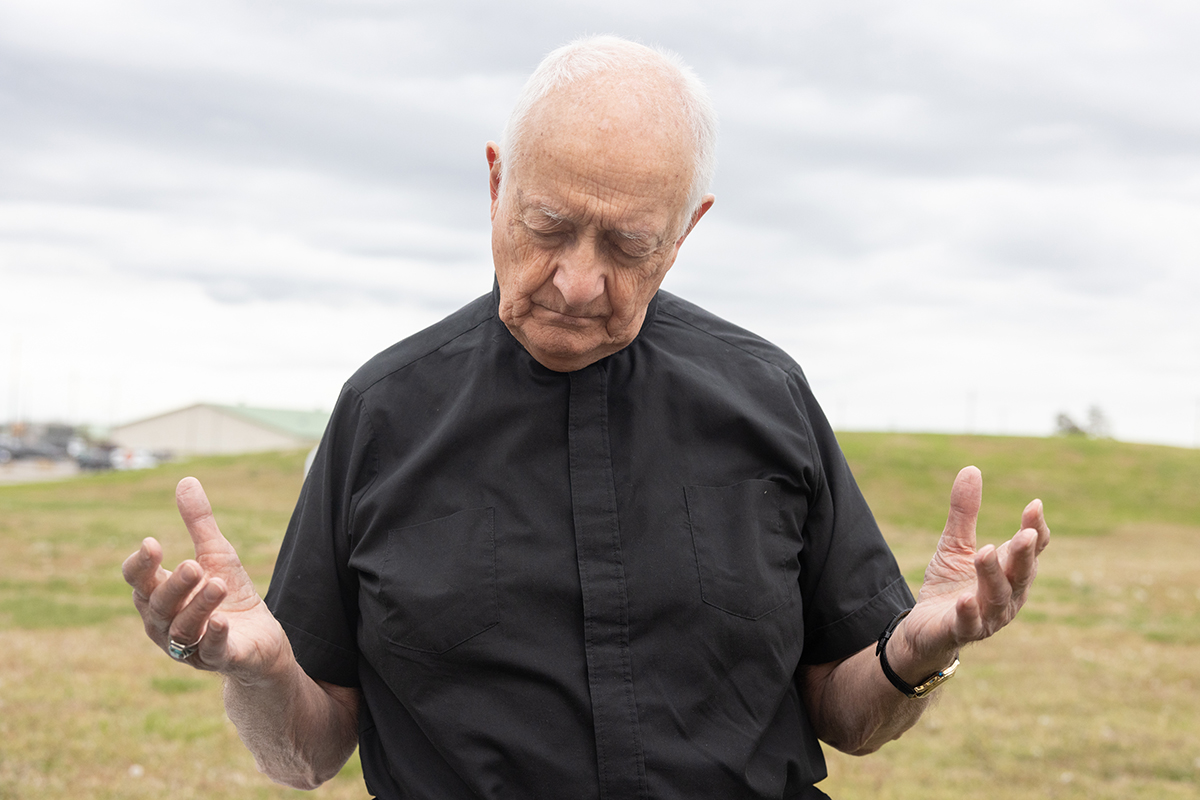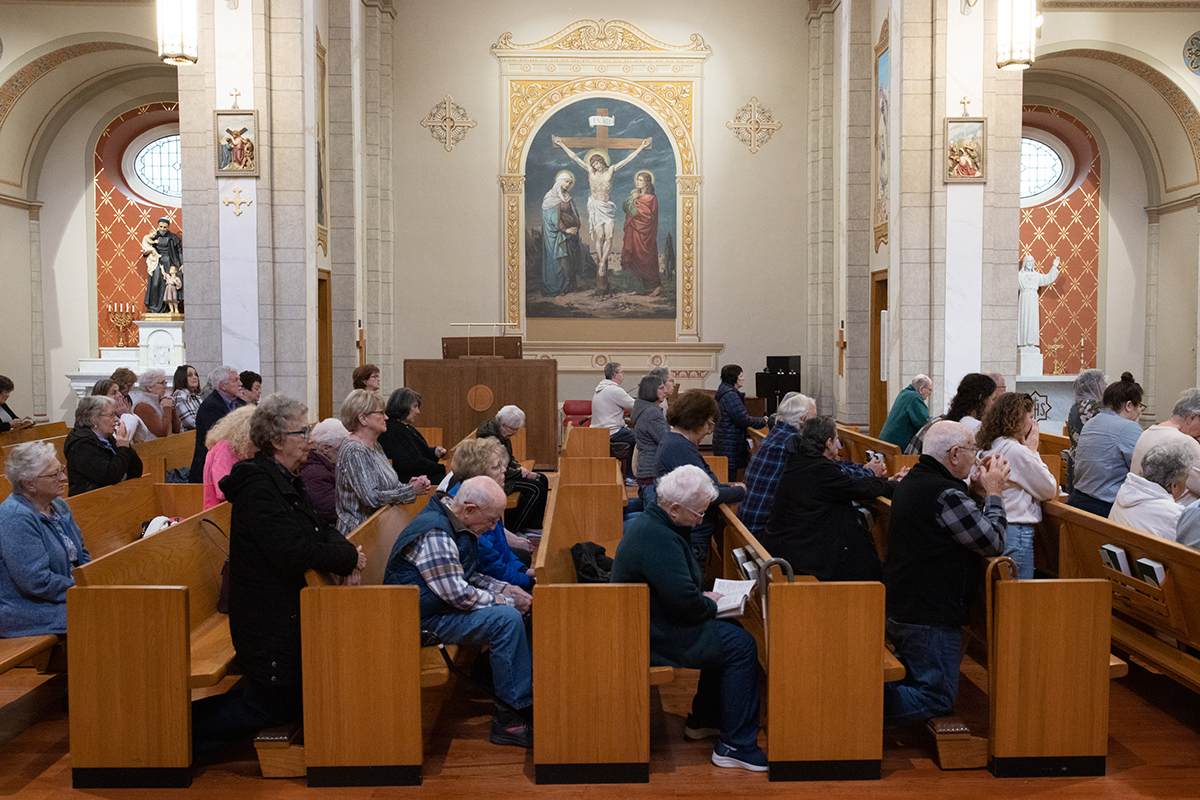Bridge Bread continues its mission, feeds the hungry admist pandemic
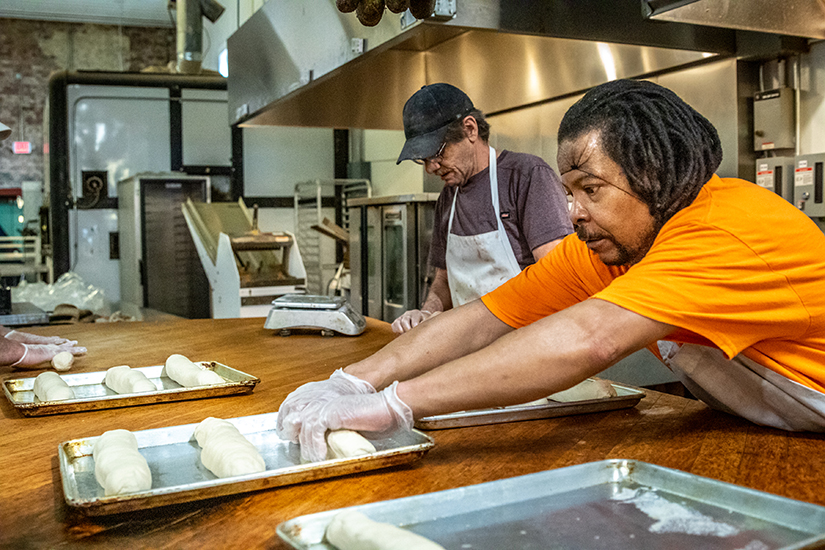
Bakers are making sandwich bread for food pantries; new online ordering has been a success
The bakers at Bridge Bread have felt the pain of being knocked down, but they’ve gotten up again — and now they’re reaching customers in a new way, while helping others in need.
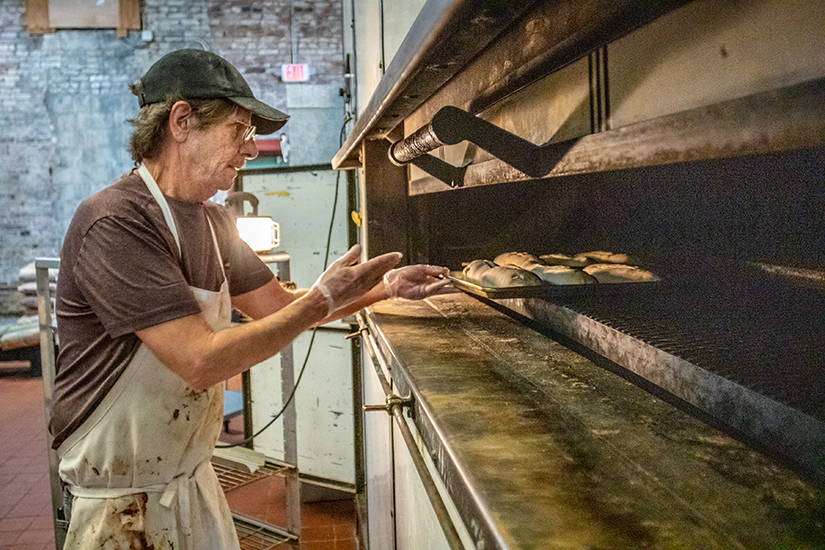
The nonprofit social enterprise, which employs people who lack safe and stable housing, recently lost 100 percent of its business due to the the coronavirus pandemic. The organization had been selling a variety of breads and pastries through five major areas — its shop on Cherokee Street in south St. Louis, a food truck, farmer’s markets, churches and its catering business. All of that came to a halt as local and state officials implemented new safety rules and social distancing guidelines.
“We were making $15,000 a month in sales on average, and it all went away,” said Fred Domke, who with his wife, Sharon, and other volunteers began baking bread in 2011 at The Bridge, a drop-in center for the homeless at Centenary United Methodist Church Downtown. Their efforts eventually became what is now known as Bridge Bread, with a retail store opening in 2015.
Prior to the pandemic, the bakers had been receiving roughly an extra $600 a month in donations, which they used toward making bread to be distributed to several food pantries in the area. Domke tapped into that idea, appealing to its supporter base, including Catholic parishes and other religious congregations that have sold Bridge Bread’s products, for donations. With this funding, they could continue to make bread for others in need — and keep the bakers employed.
“We said, if you can’t help by buying bread at church, could you let your money give twice?” Domke said. “So if someone gives $100, we give the baker five hours of work, plus the cost of ingredients, and we can make 50 loaves of bread. We give those to the food pantry and that goes to 50 families who would otherwise be hungry.”
The response was positive. The four bakers continue to work full time, making about 1,000 loaves of sandwich bread a week ($2,000 worth of bread)
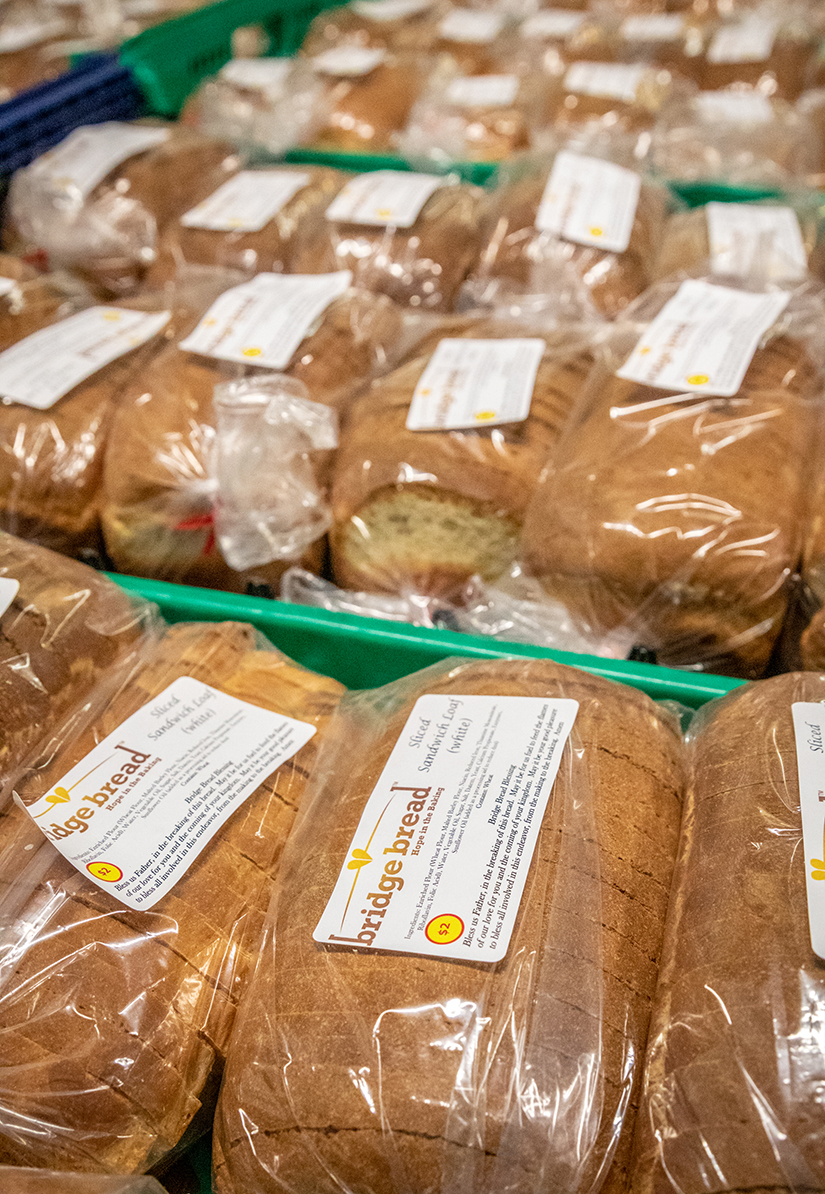
for several food pantries, including St. Anthony of Padua and Guardian Angel Settlement Association. At Mary, Mother of the Church in south St. Louis County, parishioners have bought loaves of bread to make sandwiches for others in need.
“Pantries are clamoring for bread,” Domke said. “They have gotten donated bread, but it’s typically expired or at its end of life, or sometimes they’ll only get things like croissant rolls — and you can’t make a PB&J or salami sandwich with that.”
Bridge Bread’s new online ordering and delivery service has brought in an average $2,000 a week in sales, according to Domke. He spends four hours a day driving routes across the St. Louis area, delivering loaves of bread, bagels, cookies, cinnamon rolls and other items to customers. An online ordering portal has been set up at bridgebread.square.site.
Domke said he is optimistic that the online ordering and service to the food pantries will continue beyond the pandemic. “I think we’re going to keep this up and we’re going to have more bakers than before,” he said. “If we had just laid down and taken the hit, we would have been done.”
He also acknowledged the risk that the bakers face, including having to take public transportation to get to work. Bridge Bread is paying them time and a half for their work, but he said they “are taking pride in feeding the hungry.”



